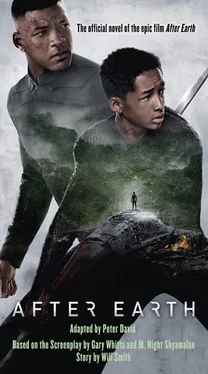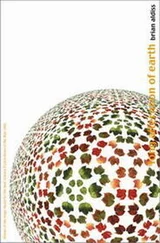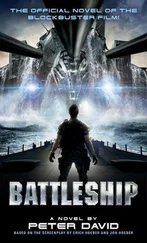They wait, their backs against the walls, their eyes fixed on the doorway.
All but Jon. He takes up a position by the entrance that doesn’t block the doorway but makes it impossible for the Ursa to miss him. If, of course, it’s capable of detecting him at all.
As the Ursa gets closer, the sound it makes changes, becoming louder, deeper. More terrifying, as well, if the looks on the faces of Jon’s teammates are any indication.
Then the creature comes around a corner out in the hallway, and Jon gets his first look at its pale, powerful form. He can see its huge black maw, which is ringed by double rows of sharp silver teeth. He can see the talons that are hard enough to score metal, hear them make soft clicking sounds on the floor.
Despite the Ursa’s apparent lack of sensory organs, it has a range of senses. Humanity’s scientists have examined Ursa carcasses and identified organs that facilitate hearing, smell, and touch. It’s only a sight organ they haven’t found, long ago leading them to the conclusion that the creatures can’t see and that their creators, the Skrel, may not be able to do so, either.
The Ursa, however, more than makes up for the deficit with its ability to perceive fear. This sense is its most acute by far. That’s why Ghosts are so valuable to the colony, valuable enough for Doctor Nizamani to invade a man’s brain and permanently impair its functions.
The data, drummed into Jon in briefing after briefing, sift through his mind. There’s another piece: the Ursa’s ability to utilize camouflage with the help of color-changing cells in its skin. But this specimen, like a few others the Rangers have encountered, makes no attempt to conceal itself.
It simply advances.
Jon can hear the breathing of his Rangers, quick and shallow behind him. They’re not like him. They’re disciplined, but they’re afraid.
But what they do and how they feel are all but irrelevant. This mission isn’t about them. It’s about him .
As Jon stands there and watches, the Ursa proceeds the length of the hallway—slowly, fluidly, despite its angular alien anatomy. It doesn’t pause to look into other classrooms. It heads right for the one occupied by the Rangers.
Jon steps out into the hallway, placing himself in the beast’s path.
With its increasing proximity, Jon can see the smart metal woven into its hide. It’s what makes the Ursa so difficult to kill even when a Ranger gets in a good stroke with a cutlass. A death blow can be made only in the creature’s unshielded spots above and below—nowhere else.
Suddenly the Ursa roars, its voice like rocks cracking in half. Jon can feel the sound in his bones. It moves closer, still closer, until it’s almost close enough to touch.
A sour metallic stench issues from its gullet, like that of human blood but more powerful. It’s the smell of its venom, an oily black substance capable of eating through flesh, bone, and even metal.
Nonetheless, Jon stands his ground.
If the Ursa detects his presence, it’ll make short work of him. It’ll tear him apart as it tore the children apart.
Such an outcome would be a source of disappointment to Jon’s medical team as well as to the Prime Commander. It would refute the idea that fear can’t be surgically eliminated after all.
Yet that’s an outcome Jon may have to face.
Suddenly, the Ursa gathers itself and leaps. Jon brings up his cutlass, knowing what little help it will be at such close range.
But it’s not Jon the Ursa is attacking. It sails past him through the door of the classroom, its target one of the Rangers behind him.
He looks back in time to see the creature pounce on Saturria or, rather, on the spot Saturria occupied until a fraction of a second ago. Saturria himself rolls across the floor, his reflexes saving him.
But they won’t save him a second time. Jon can see that as the Ursa rounds on the Ranger. It’s imprinted on him, Jon thinks. It’ll stay after him until it kills him .
Jon’s job as squad leader is to keep that from happening.
Tseng configures the blade of her cutlass into a pike and tries to spear the Ursa, but her point glances off the smart metal in its hide. Still, she draws the creature’s attention.
It’s all the distraction Jon needs. Pelting across the room, he leaps onto the Ursa’s back and drives his cutlass deep into the creature’s soft spot.
It’s a small target, an easy target to miss, but he hits it dead on. The Ursa bellows and tries to flip him off its back, but Jon hangs on. He taps his fingers in the required sequence and transforms his cutlass into a blade. Then he turns it inside the creature, tearing its insides apart.
In a spasm of pain, the Ursa finally does wrench Jon loose, sending him crashing into a wall with stunning force. But the damage to the creature has been done. It won’t survive much longer.
Knowing that an Ursa can kill even in its death throes, Jon directs his squad to leave the room one by one. Then he joins them outside in the hallway.
Through the transparent pane in the classroom door, he sees the Ursa writhe in agony, smashing walls and cabinets and windows. It’s only after several minutes have gone by that it collapses and lies still.
Jon hears a cheer go up among his squad mates. He understands why. They’re alive and the Ursa is dead.
The mission couldn’t have gone any better.
Jakande and Tseng and Saturria pat one another on the back. The others do the same thing. But no one pats Jon.
“I’m pleased,” Raige says.
Jon looks at the Prime Commander across the man’s desk. “Because I was able to ghost when the time came.”
“That’s right. We’ve been working for centuries trying to figure out how to beat these things, and we’ve finally got the answer. It’s one thing to find a Ghost once in a while, usually by accident, and another to be able to make one any time we want. That tips the odds.”
Jon knows something about odds. They are reducible to numbers, to ratios, which are a lot easier for him to grasp than hopes and dreams.
“It does,” he agrees.
“And you did that,” says Raige, “because you had the courage to take a chance no one had taken before.”
Jon is familiar with the facts. What’s more, he has a sense of what the Prime Commander is trying to do: instill a feeling of pride in him.
However, he doesn’t feel any pride.
“We’ve got other volunteers who’ve been waiting in the wings,” Raige says, “hoping to get the same chance you did. But we didn’t want to contact them until we made sure the procedure had the desired effect. Now that we know it does…”
“You’ll operate on them as well,” Jon says.
Raige nods.
Jon wonders if the Prime Commander will ask him to speak with the volunteers. He doesn’t think so. After seeing his lack of emotion, they may not wish to have the operation after all.
But he doesn’t say what he’s thinking.
The other Rangers in Jon’s squad spend a lot of time together. He notices that. They talk, they engage in laughter, they spar in the barracks.
Jon isn’t inclined to take part in such behavior. He remains separate from the others. He does the things he has been trained to do—work out his body and inspect his cutlass—and very little else.
When he eats, he eats alone. And he doesn’t linger in the mess hall. He remains there only long enough to take nourishment and then leaves.
Once he saw a woman with blond hair walking ahead of him in the hallway and jogged to catch up with her. She turned around and looked at him with eyes that weren’t green. Eyes that weren’t Doctor Gold’s.
Doctor Nizamani asks Jon how he’s getting along with his squad mates. Jon tells him the truth.
Читать дальше












